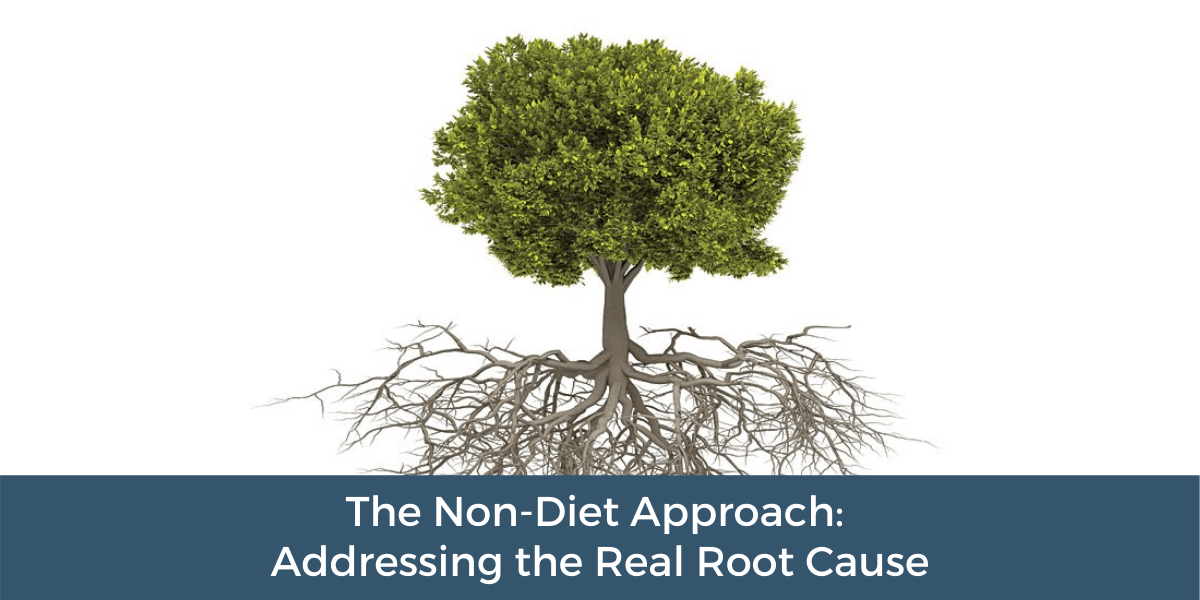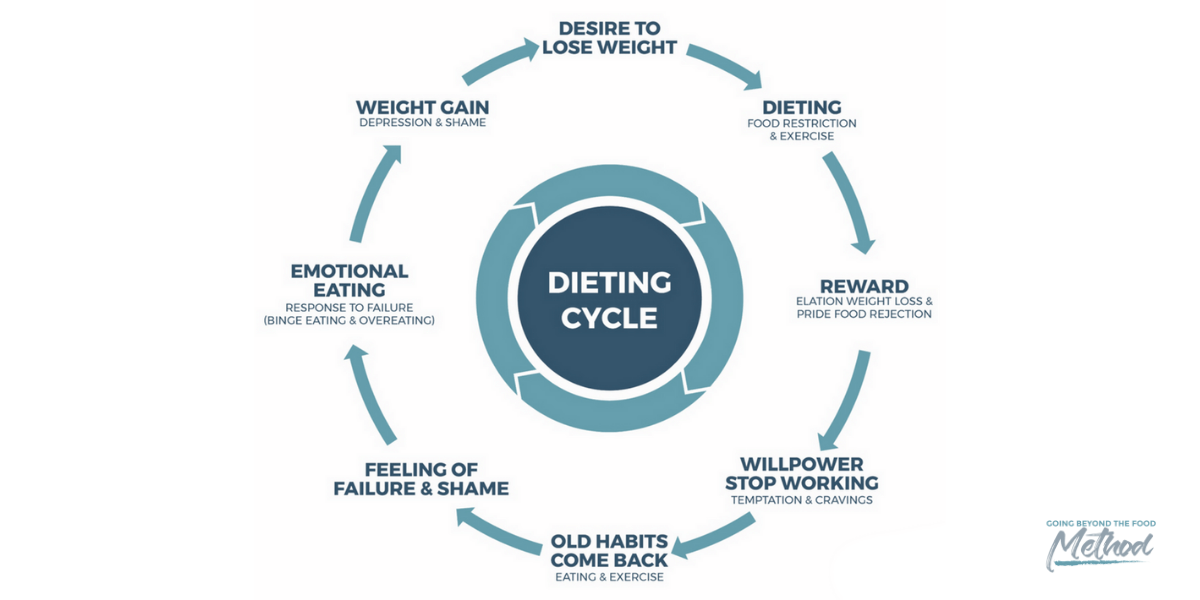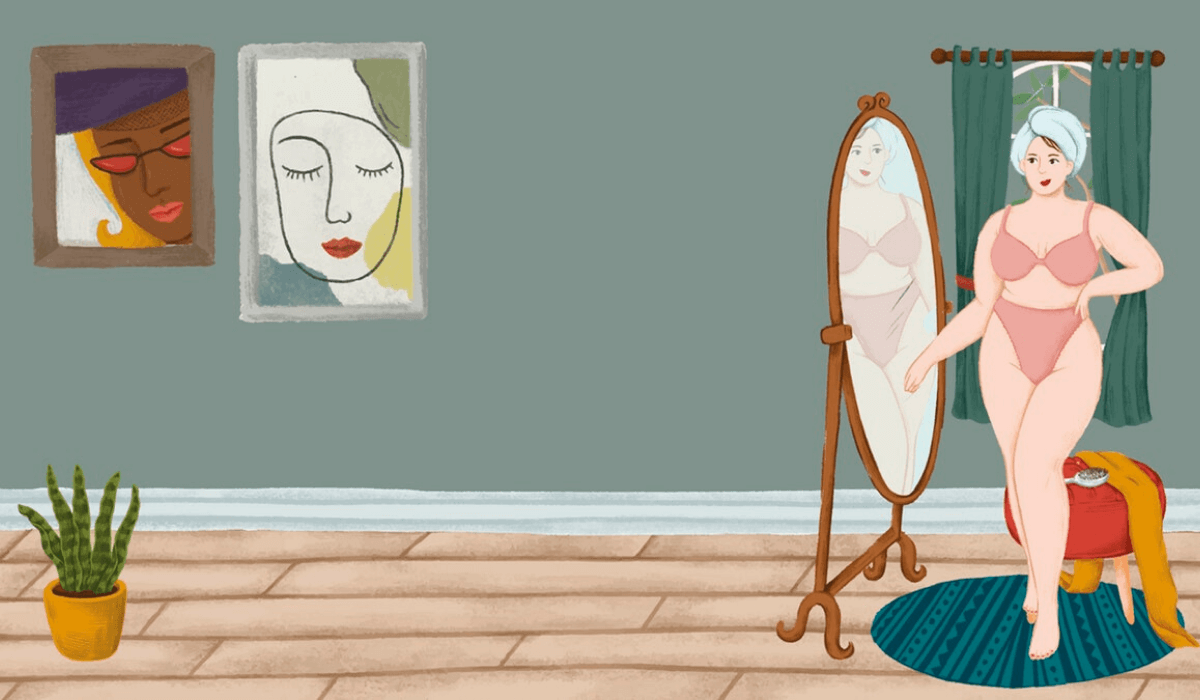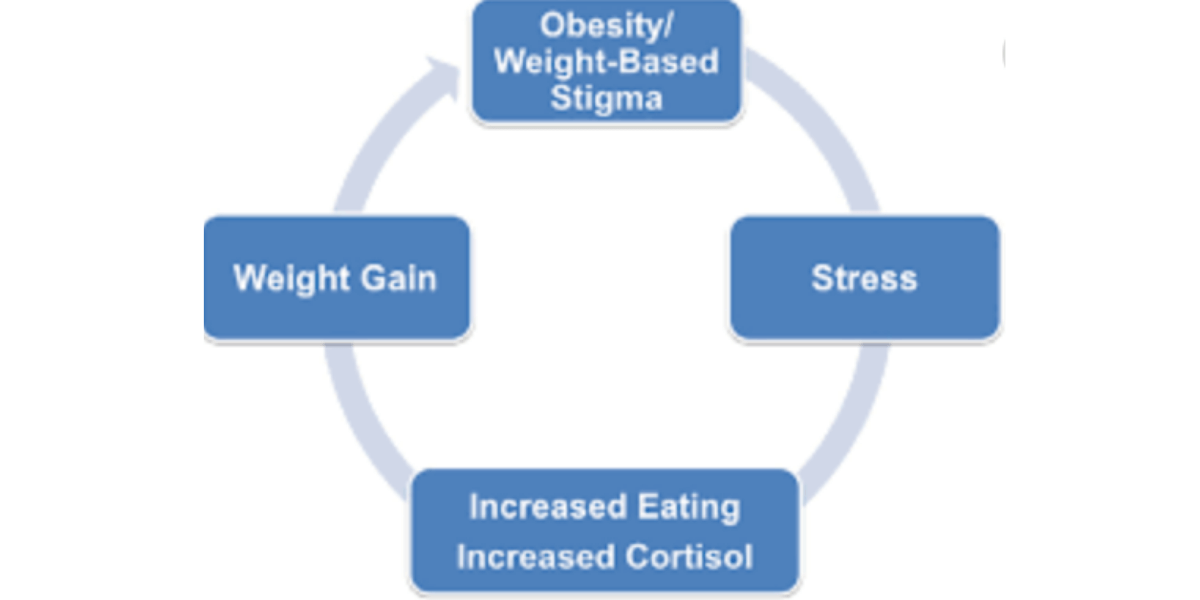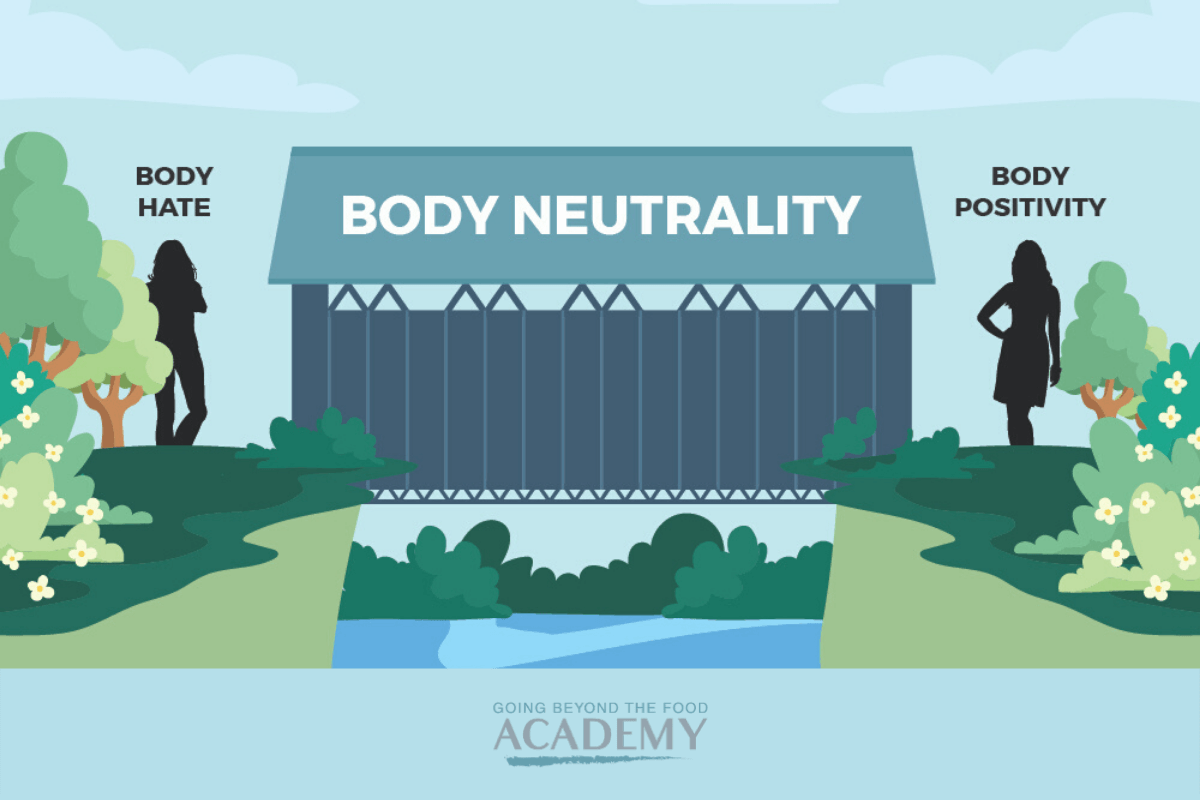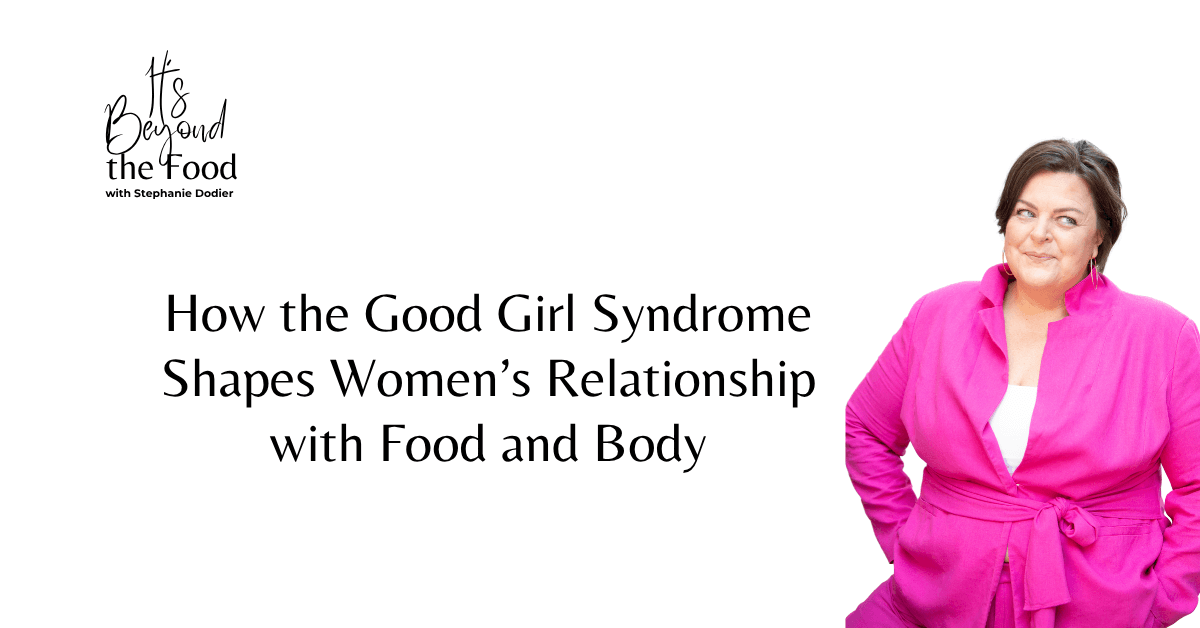

If you’re a health professional committed to coaching without co-opting diet culture, understanding Good Girl Trauma changes everything.
This trauma sits beneath many of the struggles your clients bring to you—food obsession, body dissatisfaction, burnout, perfectionism.
It’s not just about behavior; it’s about socialization. Women have been taught for generations that being “good” means self-denial, control, and compliance—and that belief quietly shapes how they eat, move, and care for their bodies.
Most women were raised to be “good girls.” Polite. Modest. Quiet. Helpful.
We learned early that our worth depended on how others perceived us—not how we felt about ourselves. This conditioning runs deep. It shapes our behavior, our confidence, and even our relationship with food and health.
What Is the Good Girl Trauma?
What many call the Good Girl Syndrome is better understood today as Good Girl Trauma—a psychological and social wound created by gendered expectations.
This trauma arises from the pressure to conform to deeply ingrained stereotypes of femininity: being agreeable, selfless, accommodating, and unproblematic. Under the surface of politeness and perfection, this conditioning erodes mental health and self-trust.
Good Girl Trauma often goes unnoticed because it hides behind what society rewards—compliance, caretaking, and achievement. It’s trauma disguised as success. It’s the exhaustion that comes from performing goodness rather than living authentically.
Over time, this pressure teaches women that love and belonging are conditional. To be accepted, we must not make mistakes, show anger, or take up too much space. We must constantly monitor how others feel about us. And that cycle—rooted in gender bias and reinforced by culture—quietly shapes every decision we make, including how we eat, move, and inhabit our bodies.
“Good Girl Trauma hides behind what society rewards—compliance, caretaking, and achievement. It’s trauma disguised as success.”
Common Signs of Good Girl Trauma
- Perfectionism: A belief that mistakes equal failure.
- Dependence on approval: Self-worth relies on praise and recognition.
- Fear of conflict: Disagreement feels unsafe, so we silence ourselves.
- Difficulty saying no: Boundaries feel selfish or risky.
- Excessive self-demand: The inner critic never rests.
- Emotional exhaustion: The pressure to appear “fine” leads to burnout and self-doubt.
Rather listen to the audio version of this blog? We’ve got you…
The Roots of Good Girl Trauma
To understand this trauma, we need to look at its origins. The “good girl ” archetype didn’t appear overnight—it’s centuries in the making.
Historical and Cultural Origins
The image of the “good girl” has deep roots in patriarchal structures and gender norms that dictated how women should behave. From fairy tales to religious teachings, women were taught that obedience, purity, and nurturing others defined their worth.
These messages created an enduring archetype: the woman who keeps everyone happy, asks for nothing, and sacrifices her own desires for the comfort of others.
Even today, these ideals linger. They influence how we parent, educate, and portray women in media. The “nice girl” may no longer wear a corset, but she still lives in the stories we tell and the standards we uphold.
Family Dynamics and Educational Systems
The pattern begins early. Girls are often praised for being quiet, cooperative, and helpful—while boys are encouraged to explore, debate, and take risks.
“Why can’t you be more like your sister? She always behaves.” “A polite girl doesn’t raise her voice.”
At home and in school, we internalize that good behavior equals love and safety. We learn that achievement and compliance bring praise, while assertiveness and self-expression invite criticism. The result? A lifelong fear of rejection and an instinct to prioritize others’ comfort over our own truth.
Media Influence
From childhood cartoons to women’s magazines, media reinforces these ideals.
The “good woman” is patient, nurturing, and self-sacrificing.
She gives, fixes, and smooths things over.
These portrayals shape not just what we see—but what we believe about ourselves. They create an invisible rulebook that measures our worth by how well we meet the impossible standard of being kind, thin, accommodating, and endlessly productive.
Growing Up to Fit the Mold
In my own life, being a “good girl” meant performing well and keeping everyone happy. I got good grades. I volunteered. I stayed quiet. I avoided standing out because being different felt unsafe.
One small moment stands out vividly. In seventh grade, I had hip surgery and spent three months at home. My parents hired a teacher to tutor me. One day, she told them my handwriting wasn’t “up to standard.” My letters were too big. My writing tilted slightly to the side.
That tiny critique turned into a family project to fix my handwriting. I remember sitting at the dining table, my parents hovering, as I practiced making my letters smaller and neater. The message was clear: don’t be different. Stay within the lines.
Not long after, my body changed—it no longer fit the “norm.” And just like that, I was taken to Weight Watchers.
That moment marked the beginning of a 25-year dieting career. The goal wasn’t health. It was conformity. I wanted to be a “good girl”—one who looked the way women were supposed to look.
Looking back, that moment wasn’t just about dieting—it was the beginning of my own Good Girl Trauma, where controlling my body became the proof that I was disciplined, worthy, and “good.”
“Controlling my body became proof that I was disciplined, worthy, and ‘good.’”
The Culture That Rewards Compliance
This isn’t just a personal story.
A Stanford University study found that the most desirable traits for women were compassionate, warm, cheerful, soft-spoken, and loyal.
For men, the top traits were independent, assertive, dominant, and decisive.
In short: women are valued for being soft; men for being strong.
And both sexes internalize this script. We grow up enforcing it—on ourselves and on each other.
Psychological Consequences of Good Girl Trauma
The mental health impact of Good Girl Syndrome runs deep. What looks like “having it all together” often masks anxiety, exhaustion, and a fragmented sense of self.
Mental Health Issues
- Anxiety: The constant fear of disappointing others or stepping out of line can be paralyzing.
- Depression: Suppressing your true self leads to emptiness and disconnection.
- Low self-esteem: Your worth feels conditional—based on approval rather than authenticity.
Struggle with Identity Formation
Good Girl Trauma creates a disconnect between who we are and who we think we should be.
We lose sight of our desires and instincts because they’ve been buried under performance.
- Conflicted self-identity: Torn between the authentic self and the “acceptable” self.
- Neglected interests: We abandon passions that don’t fit the image of the “good” woman.
Impact on Relationships
The trauma doesn’t just affect the self—it spills into relationships.
- Avoidance of conflict: Keeps relationships “peaceful” but shallow.
- Suppressed personality: Only the accommodating version of you is visible.
- Critical self-view: Frustration and shame amplify when you can’t meet impossible standards.
The Emotional Cost of Being a “Good Girl”
Good Girl Trauma teaches women to repress emotion. Anger, frustration, and grief are labeled “unfeminine.” So we turn inward, channeling pain into self-control or self-criticism.
Diet culture thrives in this silence. It tells women that emotional eating is weakness, that hunger is moral failure, that our body is a problem to be fixed. In truth, food often becomes the outlet for emotions we were never allowed to express.
We numb because we were never taught to feel. We overachieve because we were never taught to rest. We diet because we were taught to disappear.
How Good Girl Trauma Shapes Our Relationship with Food and Health
Good Girl Trauma doesn’t stop at emotional well-being—it infiltrates how women relate to food, health, and their bodies.
When we’re taught from childhood to suppress emotions and meet impossible standards, our body becomes the stage where that conflict plays out. We use control—of food, weight, and movement—to manage anxiety and maintain a sense of order in a world that demands perfection.
The thin ideal becomes the goalpost through which women prove they are “good.” A disciplined body signals compliance. A smaller body earns approval. And a body that resists shrinking becomes a source of shame.
For many, dieting begins as a socially sanctioned way to “be good.”
- Eating “clean” becomes proof of discipline.
- Pushing harder at the gym becomes a way to earn worth.
- Shrinking the body becomes a stand-in for shrinking emotional pain.
The result is not health—it’s disconnection. We lose trust in our bodies’ cues and confuse self-punishment with self-care.
In my work with women, this is often the turning point: realizing that their food and body struggles were never about willpower—they were about approval. Diet culture simply took the Good Girl script and sold it back as “wellness.”
Healing begins when we stop treating our bodies as projects to fix and start seeing them as partners in our recovery. When we rebuild trust with hunger, rest, and pleasure, we reclaim more than health—we reclaim autonomy.
“The thin ideal is the goalpost through which women prove they are good—discipline becomes morality, and shrinking becomes virtue.”
Coping Mechanisms and Unhealthy Behaviors in Good Girl Trauma
To survive the unrelenting pressure of perfection and approval, many women develop coping mechanisms. Some may look successful from the outside—but they often deepen the wound.
Common Coping Strategies
- Perfectionism: The endless pursuit of flawlessness to avoid criticism.
- Overworking: A constant drive to prove worth through productivity.
- People-pleasing: Prioritizing everyone else’s needs to maintain approval and safety.
Consequences of Maladaptive Coping
- Burnout: The inevitable crash from chronic overperformance.
- Neglect of personal needs: Health, joy, and rest are sacrificed for others.
- Relationship strain: Either overdependence on approval or emotional withdrawal.
The Cycle of People-Pleasing
If you struggle with people-pleasing, it’s not a character flaw—it’s a survival strategy. It was once how you stayed safe, loved, and accepted. But as adults, it becomes a cage.
Saying no feels like betrayal. Rest feels indulgent. And asserting needs feels wrong.
These learned patterns make it hard to set boundaries or care for ourselves without guilt. But awareness is the first step toward freedom.
The Duality Within
Inside many women lives a tension: the Good Girl we were taught to be versus the authentic woman we are becoming.
That duality explains why so many of us struggle with food, body image, and self-worth. The problem isn’t willpower—it’s the collision of conditioning and identity.
Once we recognize this, we can start rewriting the story.
“Healing from Good Girl Trauma isn’t rebellion—it’s reclamation.”
Reclaiming Our Power
Healing from Good Girl Trauma isn’t about rebellion—it’s about reclamation. We move from perfectionism to self-compassion. From compliance to authenticity. From managing others’ comfort to honoring our truth.
When we stop chasing approval, we reclaim our voice, our body, and our worth. And in doing so, we model something revolutionary for the next generation: that being a woman isn’t about being “good.” It’s about being whole.
Ready to Support Clients with Good Girl Trauma?
You can access all of our services on our work with us page. We have a number of programs and service levels enabling us to serve most women:
Free Resources and Masterclasses: Get started and get to know us better!
Private coaching with Stephanie and her team Stephanie and her team of Certified Non-Diet Coaches are waiting to support you in a one-to-one setting with an individualized plan.
Non-Diet Coaching Certification for professionals ready to integrate the Going Beyond The Food Method™️ in their practice and for women wanting to become a Certified Coach and build a business coaching other women beyond the food.












